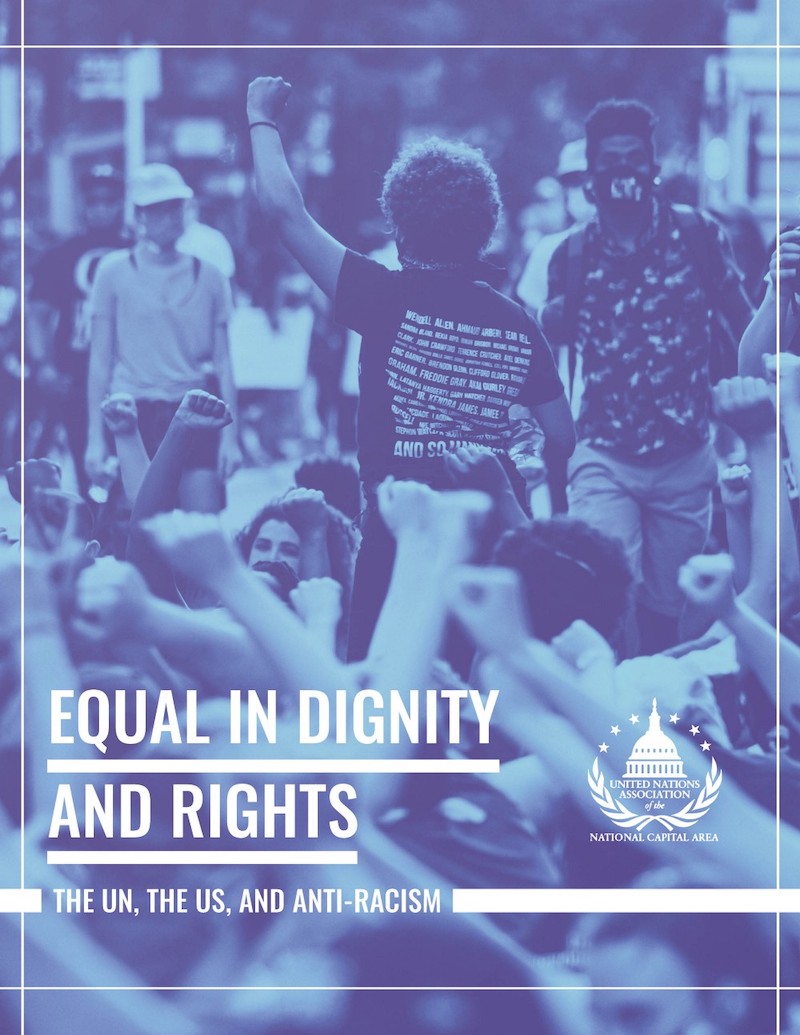EXECUTIVE SUMMARY
“No matter how desperately and firmly we may be interested in the settlement of the race problem in Boston, in Kansas, and in the United States it cannot ultimately be settled without consultation and cooperation with the whole civilized world.”
W.E.B Dubois, working with the National Association for the Advancement of Colored People (NAACP), penned the 1947 petition titled ‘An Appeal to the World: A Statement on the Denial of Human Rights to Minorities in the Case of Citizens of Negro Descent in the United States of America and an Appeal to the United Nations for Redress.’ This document is among the very first non-governmental petitions to call on the United Nations to investigate human rights abuses by a Member State.
The petition was referred to the UN Sub-Commission on the Prevention of Discrimination and the Protection of Minorities. There, a proposal to investigate racial discrimination in the U.S. was rejected by a margin of four votes to one, with seven abstentions. The U.S. delegate, Jonathan Daniels, voted against the resolution and, ultimately, the petition charging the U.S. with Genocide was left unanswered. The United States Government effectively absolved itself from international scrutiny, pursuant to article 2(7) of the UN Charter.
This initiative, and several following it, nevertheless drew increased international attention to racist violence in the U.S. In 1964, civil rights activist Malcolm X urged African UN Member States to call out the U.S. over racial discrimination and brutality. Now, fifty-six years after, the family of George Floyd has appealed to the United Nations for justice over the very same issues. At an urgent debate held by the United Nations Human Rights Council (UNHRC) in Geneva, Switzerland, Philonise Floyd, George Floyd’s brother addressed the special meeting: “You in the United Nations are our brothers’ and sisters’ keepers. I am asking you to help me get justice.”
Charles H. Houston, prominent lawyer and General Counsel of the NAACP once argued in an appeal to the UN that, “a national policy of the United States which permits disenfranchisement of colored people in the South is just as much an international issue as the question of free elections in Poland or the denial of democratic rights in Franco, Spain.” Indeed, the issue of racism in this nation is as much personal as it is international. Spurred by George Floyd’s police murder in Minneapolis, Minnesota, the world is witnessing the largest transnational mobilization against systemic racism in law enforcement. The momentum generated by these global demonstrations presents a powerful opportunity to move the UN’s anti-racism agenda forward.
The following report catalogues the key components that make up the United Nations’ global arsenal of anti-racism instruments. An assessment of the UN’s anti-racism agenda and international legislation, however, is incomplete without a discussion of the United States’ involvement and compliance, or lack thereof. Thus, the report integrates an overview of the United States’ role in the global fight to combat racism and racial discrimination and concludes with a call to acknowledge systemic racism at all levels – international, national, and local – so that the current movement of global reckoning is harnessed effectively.
Learn More









